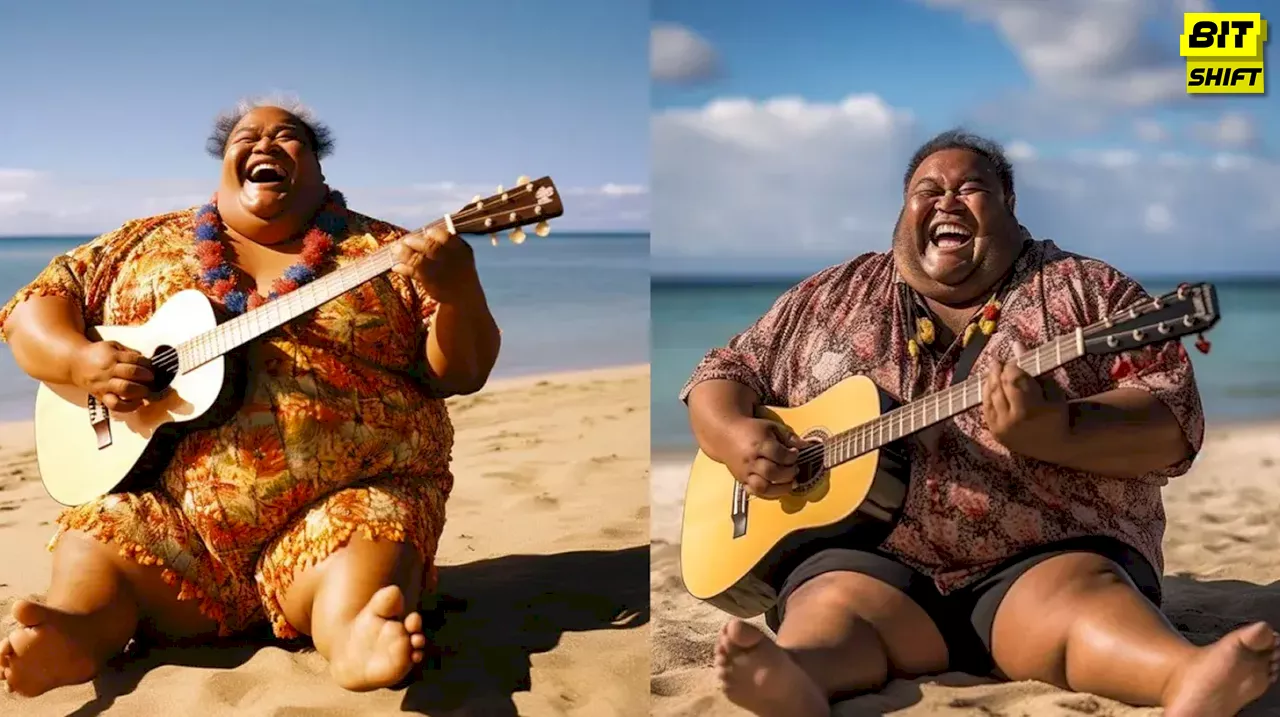
Summary
Interestingly, an AI-generated image of the late Hawaiian singer Israel Kamakawiwo’ole has reached the top of Google’s search results. This development has sparked discussions about the use and influence of AI in online content creation and distribution.
If you try to find a picture of Israel Kamakawiwo’ole, best known for his soothing ukulele rendition of Judy Garland’s “Somewhere Over the Rainbow,” on Google, you may be surprised by what you see. The top image results on Google’s search engine are not an actual photograph of the late Hawaiian singer but an AI-generated render.
“AI’s influence is expanding beyond our screens and into online content creation and dissemination.”
The AI creation was first pointed out by Ethan Mollick, a researcher at the University of Pennsylvania’s Wharton School of Business. He discovered that the first image appearing in Google’s “knowledge panel” results was a “Midjourney creation right from Reddit” showing Kamakawiwo’ole playing an anomalous-looking guitar rather than his signature ukulele.
The Role of Midjourney and AI Image Generation
The image was posted on the r/Midjourney subreddit four months ago and was clearly labeled as part of the AI image generator’s prompt: “A happy Israel Kamakawiwo’ole.” The exact timeframe of its appearance in Google searches for the singer’s name remains uncertain.
When Futurism tried to validate Mollick’s findings, a regular Google Chrome search and an Incognito window confirmed the prominence of the AI-generated image in the site’s knowledge panel search results.
Google’s Response to the AI-Generated Dupes
When confronted about the AI-generated dupes, Google provided a fairly standard response, and, notably, the images have not yet been removed. In an email to Futurism, a Google spokesperson highlighted the company’s efforts to improve the context and credibility of images with new tools like “About this image.” However, they also admitted that their systems might not always select the best photos, regardless of whether they are AI-generated.
The spokesperson further mentioned that they are actively working on quality improvements for features like Knowledge Panels to ensure the surfacing of reliable, representative imagery as this space evolves.
While AI-generated content creates new challenges for companies like Google that handle vast amounts of human- and machine-generated content on the web, many believe this sort of response absolves Google of responsibility when such incidents happen.
The Broader Implications of AI in Online Content
This incident underscores a growing concern: AI fakes and falsehoods are infiltrating the first search results for a rising number of queries, thereby visually equating them with reality. As AI continues to redefine the digital landscape, it is crucial to address these challenges and ensure that the integrity and authenticity of digital content are preserved.
Share the Article by the Short Url:




